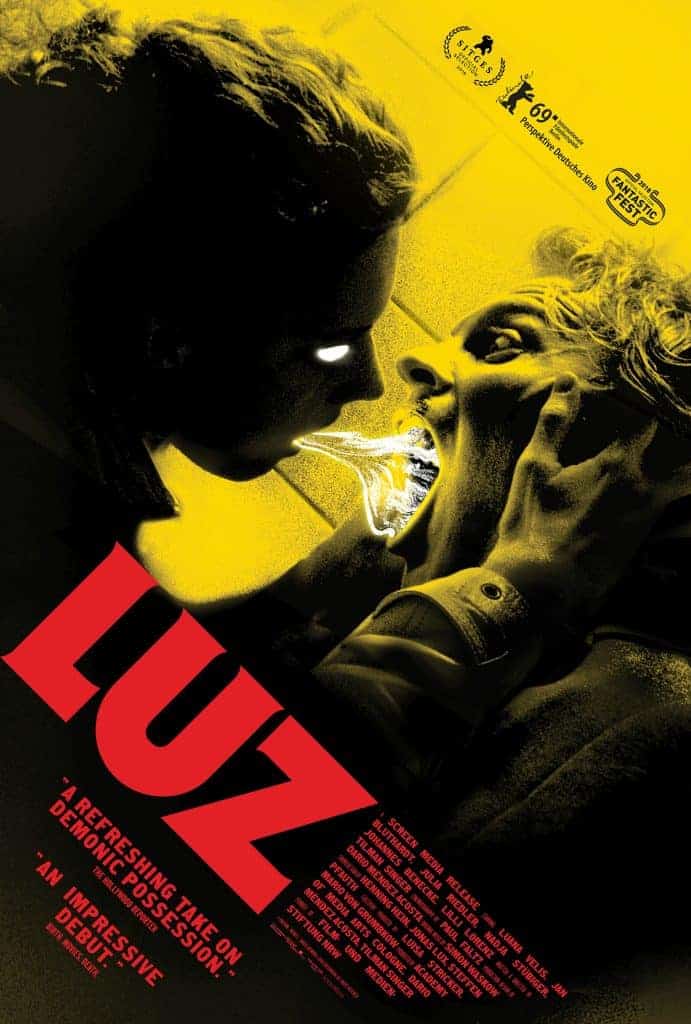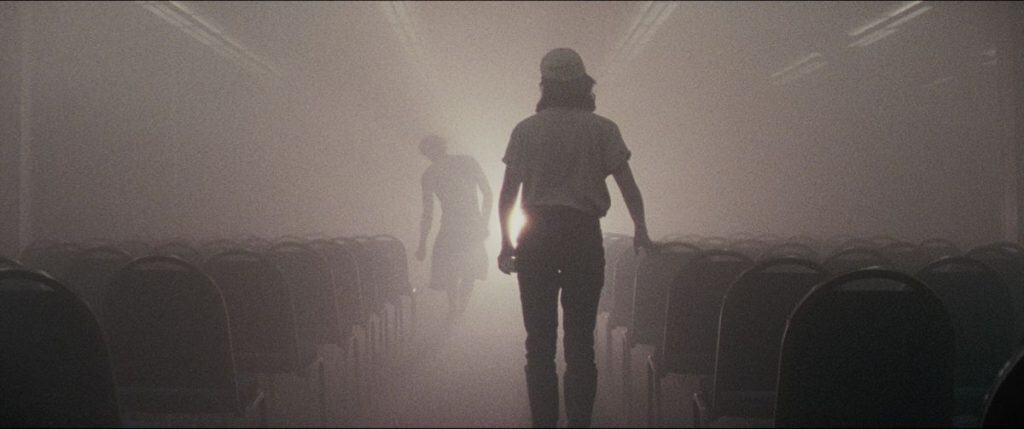★★★1/2 out of ★★★★★
This artistic, sometimes surreal approach to a movie about demonic possession may alienate some viewers with its distanced, experimental approach, but it warrants watching.
Directed by Tilman Singer
With so many demonic-possession horror films trying to recapture the lightning in a bottle that is the classic The Exorcist (197?), German offering Luz (2018) avoids several cliches of the subgenre, going for an artier, more mysterious, and somewhat surreal approach, rather than opting for a more visceral spin involving heavy make-up or CGI effects and buckets of fake vomit. The result is an intriguing, if sometimes head-scratching take.
Writer/director Tilman Singer is both ambitious and ambiguous in helming Luz, which was his film school thesis project, shot on 16mm film. The movie has both an icy arthouse feel reminiscent of some 1960s and 1970s Eurohorror, while simultaneously recalling eerie tropes of American occult horror from those same decades, as well as the 1980s. Though it shows its roots, Luz very much feels like a modern-day film, rather than going for pastiche. Answers to questions are not easy to come by, but patient viewers should feel rewarded for taking this sometimes jaw-dropping ride.
Luz Carrara (Luana Velis) is a taxi driver in Germany who kicks off the film by walking into a police station and acting in a bizarre manner. We later learn that she went to boarding school in Chile with Nora Vanderkurt (Julia Riedler), who viewers meet in a bar trying to seduce police psychologist Rossini (Jan Bluthardt). Vandekurt wants to find Luz, who jumped out of her moving cab to avoid her former classmate. As fate would have it, Rossini is called into the station to examine Luz, and Vanderkurt accompanies him.
That’s a simplified synopsis of what happens up to this point, avoiding spoilers of how the proceedings up to this point have had an odd and eerie flavor. None of it, however, prepares viewers for the madness and mayhem that ensue once the main characters are all brought together. Part experimental approach and part flat-out unnerving horror territory, this is where Luz shines most brightly as fear fare.

It is difficult to imagine much of this working well without cast members who are all in on what Singer is going for, and thankfully Velis, Riedler, Bluthardt, and the supporting players are up to the task. Velis is terrific, especially during her scenes in which her character recreates past events through mime under Dr. Rossini’s watchful eye. Riedler makes for one of the most disquieting femme fatale characters in recent memory, and Bluthardt gives a bravura performance sure to send shivers down the spines of more people than just the observing police staff.
Ultimately, though, Singer often tips the scales more heavily in the direction of experimentation than plot, and his distanced approach is likely to alienate viewers who prefer to get more emotionally involved with characters and story. Luz proved to be divisive on its film festival run, and now with its wide release in the United States, which begins in New York City and Los Angeles on July 19 before a multi-city release to follow, viewers can decide for themselves about how effective the film is for them. It is definitely worth watching, as Singer shows himself as a talent to be watched.
Review by Joseph Perry



